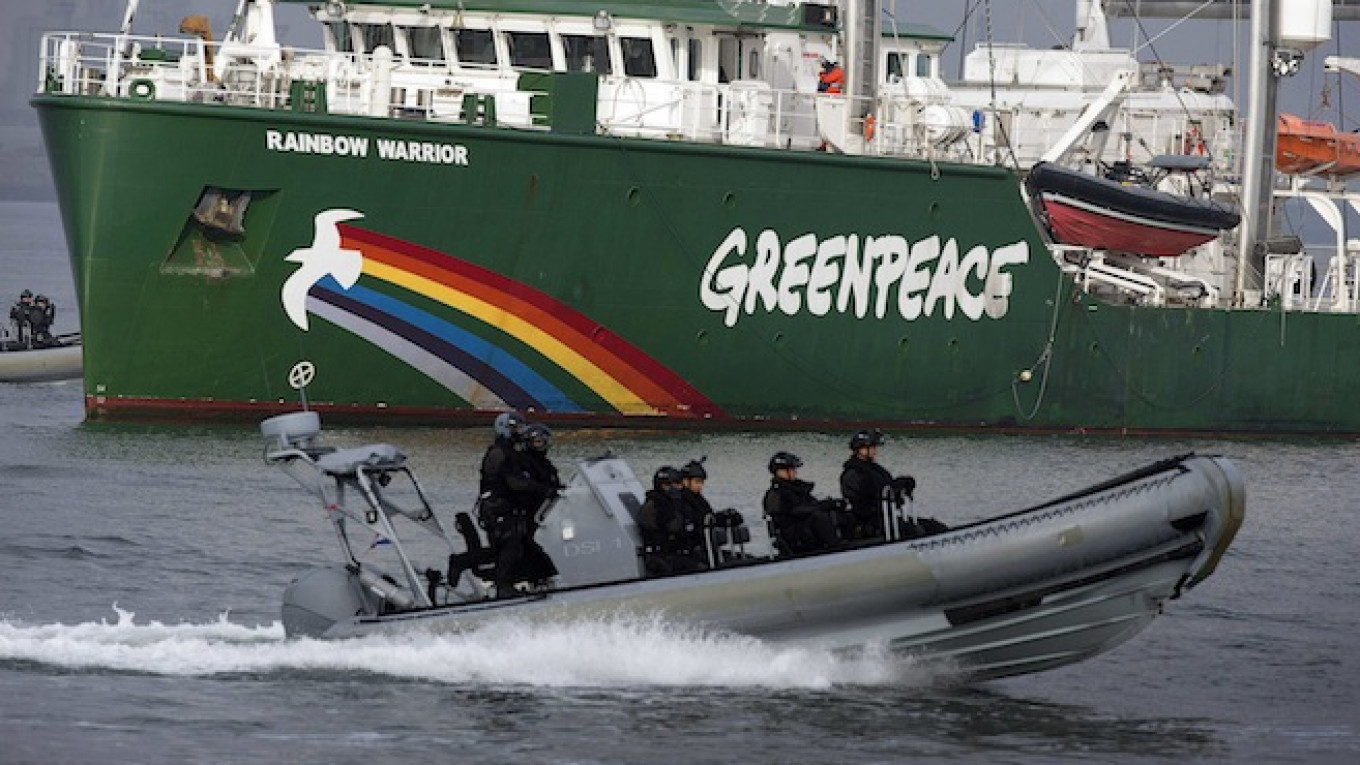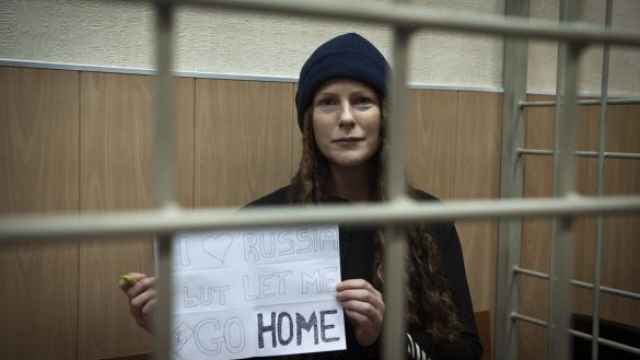The head of the presidential administration, Sergei Ivanov, has accused the environmental group Greenpeace of extremism — a charge considered a criminal offense in Russia.
"I don't respect Greenpeace because of their thuggish, extremist methods," Ivanov was quoted by state-run RIA-Novosti as telling residents of the Kuril Islands.
Extremism is an offense punishable by up to 10 years in prison in Russia, though Ivanov did not mention any plans to bring charges against the group.
Ivanov, a self-proclaimed "nature lover," also urged Kurils residents to take care during mining on the archipelago "because you have such amazing sights here," state-run RIA Novosti reported Wednesday.
The Kuril Islands — occupied by Russia since the end of World War II but also claimed by Japan — are rich in minerals, including gold, silver, titanium and oil.
Greenpeace, who rarely curry favor with the authorities given their direct methods, had a major falling-out with the Kremlin last year over its offshore drilling in the Arctic.
A group of 30 activists spent months in Russian custody last year and were threatened with lengthy jail terms after storming Gazprom's offshore Prirazlomnaya drilling rig in the northern Pechora Sea. The so-called Arctic 30 were eventually released under a presidential amnesty, issued December by President Vladimir Putin.
Greenpeace sticks to radical action because it is the only way to counteract powerful clans of businessmen and officials in Russia, according to activist Vladimir Chuprov.
"To mirror Ivanov, we're fighting their thuggish decisions," he told The Moscow Times on Wednesday.
Chuprov named the military and economic exploration of the Arctic as an example of such "thuggish decisions." Russian state companies plan to drill for oil and gas in the region in partnership with U.S. and European corporations, and a military base is under construction on the Arctic Wrangel Island, a UNESCO World Heritage site.
But Greenpeace will not sue Ivanov over his comments because it has too many defamation lawsuits to maintain as it is, Chuprov said.
Contact the author at a.eremenko@imedia.ru
A Message from The Moscow Times:
Dear readers,
We are facing unprecedented challenges. Russia's Prosecutor General's Office has designated The Moscow Times as an "undesirable" organization, criminalizing our work and putting our staff at risk of prosecution. This follows our earlier unjust labeling as a "foreign agent."
These actions are direct attempts to silence independent journalism in Russia. The authorities claim our work "discredits the decisions of the Russian leadership." We see things differently: we strive to provide accurate, unbiased reporting on Russia.
We, the journalists of The Moscow Times, refuse to be silenced. But to continue our work, we need your help.
Your support, no matter how small, makes a world of difference. If you can, please support us monthly starting from just $2. It's quick to set up, and every contribution makes a significant impact.
By supporting The Moscow Times, you're defending open, independent journalism in the face of repression. Thank you for standing with us.
Remind me later.







